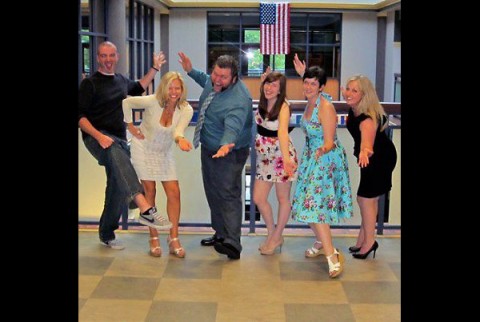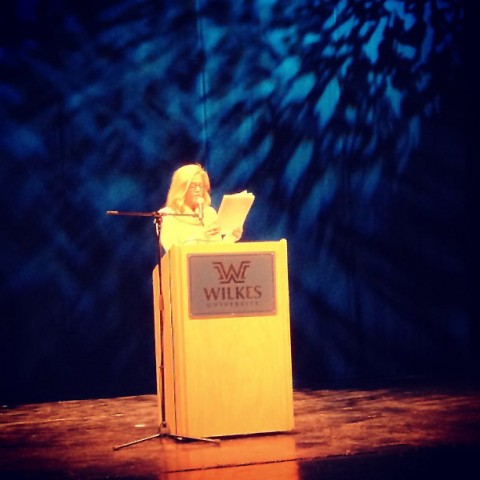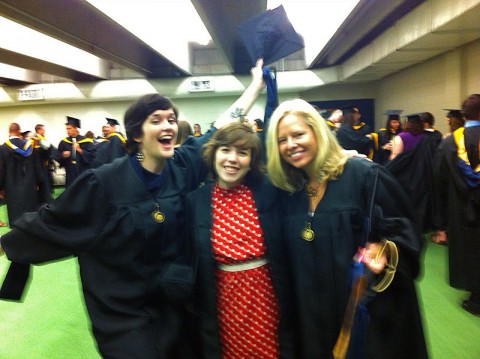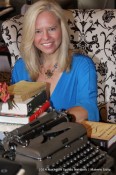 Nashville, TN – “Never Too Late…” (For an MFA)
Nashville, TN – “Never Too Late…” (For an MFA)
Many people wonder what it’s like to go back to school later in life to do something they were meant to do (or should have done) a long time ago. Some people dream of a long-forgotten talent being awakened, a paintbrush being lifted back up to a canvas, or delving into studies for an advanced degree in a field they’re passionate about. Thankfully, in 2010, I found out what this is like.
In my case, passion was about picking up a pen. Looking into a blank page without fear—or most often into a computer screen.

I’d write in the margins of my Social Studies worksheets, daydream poems through Algebra (to my father’s dismay) and wax poetic about birds outside the school windows, as I wondered where they were flying. Back then, my pen was so active that it seemed to never cease moving across a page.
With my passion and excellent English grades, everything would have seemed to have pointed to a college degree, and then perhaps a masters in my “chosen” field, or the avocation that chose me. But a little thing called epilepsy got in the way smack dab in the middle of my adolescence. I became familiar with the weight of heavy barbiturates, and less and less familiar with focusing on my grades, college applications, or SATs.

I can’t blame epilepsy entirely for my loss of drive and discipline as I watched everyone else traipse off to visit colleges and sweat out their entrance essays. And I was still writing. There were highs: poems that came to me in my bedroom where I stayed inside with the door locked most nights, sitting on a beanbag chair and pressing my pen into those comforting yellow notebooks, and where I might not look up for hours.
Those times I might have thought I had the energy to make something of the creativity that was swarming in my head, but the crashes and the seizures that came simply took away my wherewithal of how to put it all together.
Fast forward to my early twenties when the illness disappeared (my neurosurgeon had always said I could grow out of it) and the drugs left my body. My brain was firing again—but in all the right ways. Inspired, I wrote feverishly; I even began short stories and songs in addition to poetry. But I was writing in a vacuum. I had no guideposts. I kept my writing mostly in boxes.
By the time I was in my late 20’s and 30’s, I had published my first poems and essays in some decent journals. I was raising two boys, but I wrote (once again) in the margins of that hectic life, just as I did on my Social Studies worksheets so long ago. I can still recall getting an acceptance letter for one of my poems after submitting and piling up some kind rejections.
My writing life became my little world of magic, outside of the mainstream life I was leading in the suburbs. When I lined up with the other moms at my son’s elementary school outside the doors, holding my son’s hand, I felt different. I knew I had poems waiting at home.
Sneaking off to writing conferences in cool places where people talked about writing the entire time was like a paradise, and when I thought of it gave me goosebumps. I’d found my “tribe,” it was clear. I continued to get acceptances and get inspired between nursing one baby and playing with blocks on the floor with my toddler. I relished and loved my role as a mother, even wrote about the overwhelming passion I felt for that part of me in essays, while my writing time remained “stolen time” with a lover on the side.
And then my forties hit. I had a Commonwealth of Pennsylvania poetry fellowship, an anthology award for the winning poem in the book, and a life spent in everything from politics (I actually ran for local office during that time and won) to volunteering to run a non-profit art center I loved where I taught poetry to high-schoolers.
But I did not have a book of my poems. My writing life was disjointed. I did not have the deep well of knowledge and extra layers of craft I longed for that one can only obtain when working not in the margins, but by delving in wholly and completely into a “thing.”

And then, at one of my writing workshops I took annually at Chautauqua, New York, I heard about Wilkes: a Low-Residency Creative Writing MA/MFA Program at Wilkes University in Wilkes-Barre, Pennsylvania, from the poet, Neil Shepard. It required a residency of only 10 days twice a year.
I sat down with my then husband to talk about it. Could I really possibly make the move in my life from writing in the margins to making writing the central part of my life? He was supportive, but we talked about what a terrible time it was to start the program. My one son would be in his senior year of high school, and there were a myriad of other commitments I was responsible for at the art center. Yes. It was a terrible time to start school. I enrolled that winter of 2010.
At Wilkes, I learned that writing can be central, and that not only do other people have a secret life of writing, but also a central one. Growing up in the very provincial small steel city that I did in Western, PA, I had never been programmed to believe that a career in the arts was a valid choice for a main avocation. I had to work to shed that concept. And as for the Wilkes University program, what can I possibly say of it in these lines to do it justice?
I learned craft and scholarship from my poetry mentor, Neil Shepard, who went above and beyond to acknowledge my work and validate its importance. I learned about memoir from J. Michael Lennon (who happens to be the authorized biographer of the great Normal Mailer.) I learned how to find my way around a cafeteria line, and often drank more than I should.
I also learned from my other cohort members as well as faculty about writing practices—making time no matter what. I also learned some new tricks as the older dog. To my surprise, I was not the oldest in the course. I reveled in a second chance to get done the thing I should have so many years ago.
But the biggest thing I learned? Staying the course. Today, I have a poetry book that was taken before I was even out of the program and published the same year I graduated. I can certainly and without question say that I never would have accomplished this on my own. There were times I hated my book while editing it during the program. What had captivated me in draft form, taunted me with loathing as I lived and breathed with it over a year.
I got sick with C-diff. It was an illness so potentially dangerous that I couldn’t even google it. I wrote when I didn’t feel well. I wrote when I didn’t want to. I wrote sitting in a deep-back chair in my office with my head nearly banging down onto my laptop at 1:30am from falling asleep on deadline for an assignment.
But I finished my book. I did not abandon it as could have been so easily. And that is the difference between a life of writing in the margins and a life where writing is placed smack dab in the middle of life. For me, right where it should be.


